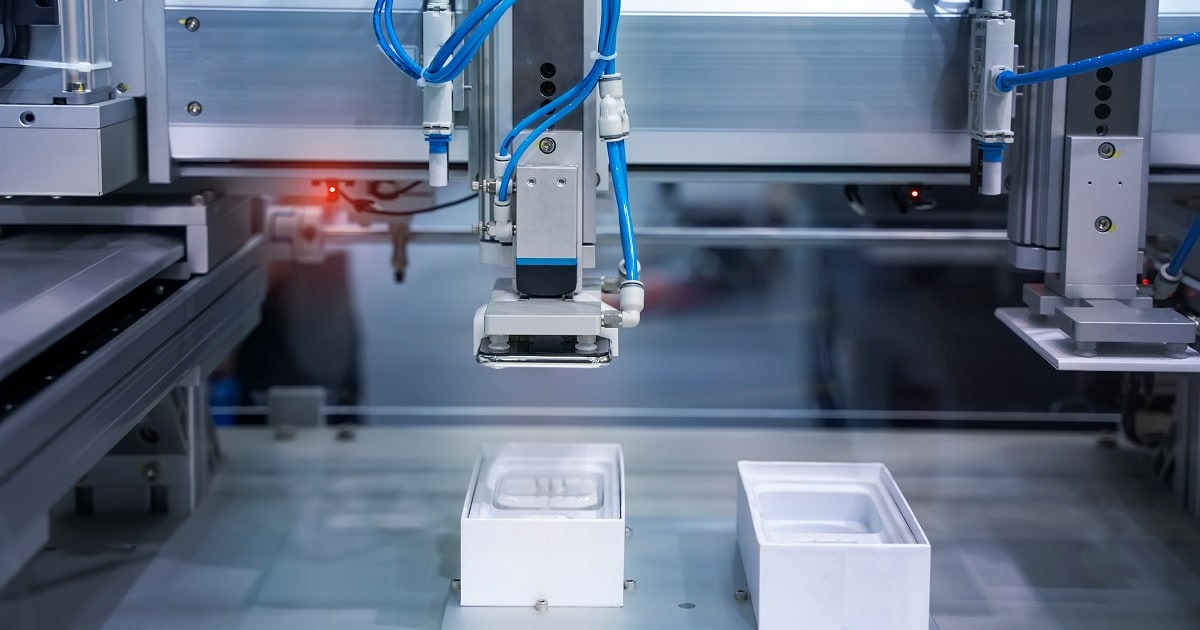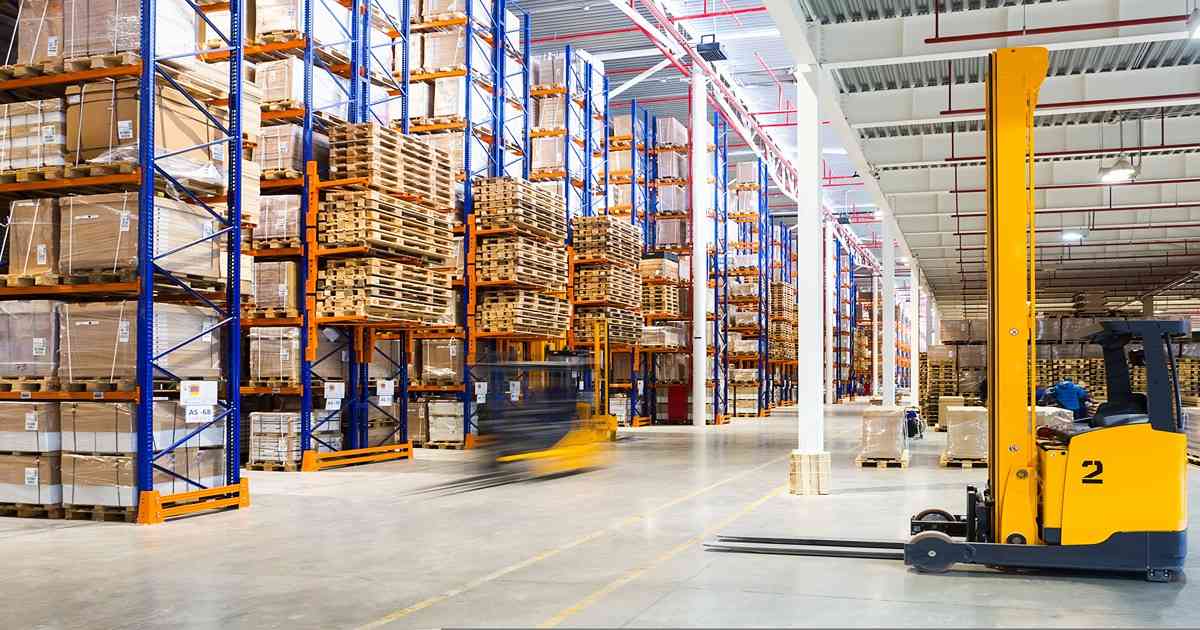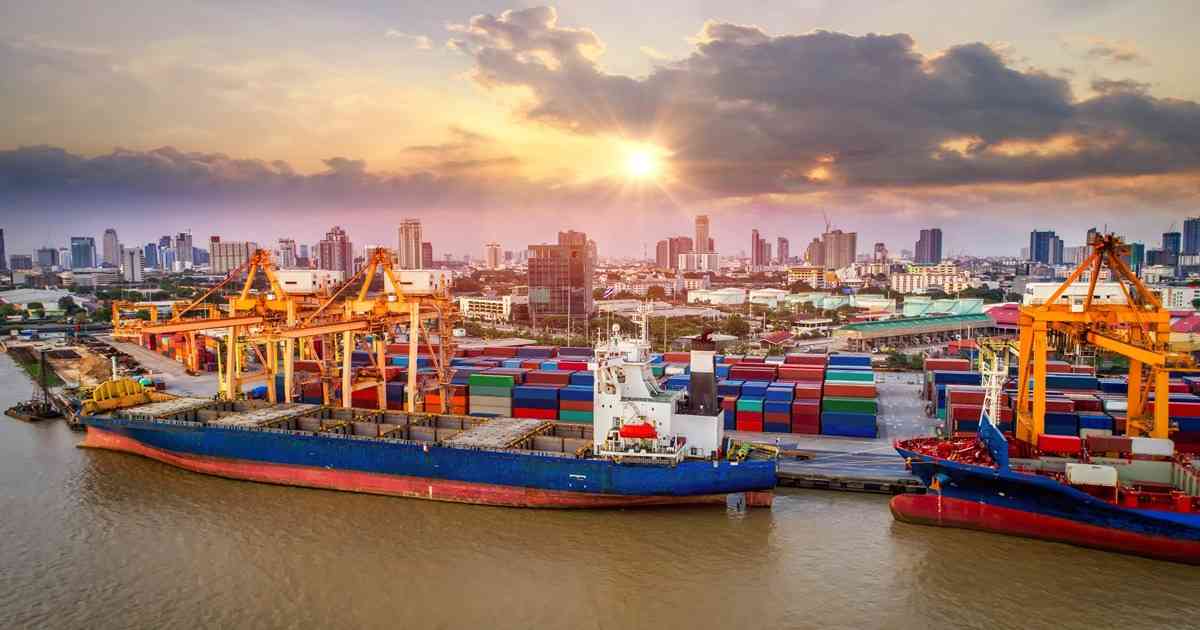
Supply Chain
Article | August 17, 2023
Autonomous robots have transitioned from a futuristic system that only a few enterprises could afford to a sustainable, well-established solution in a wide assortment of warehouse automation projects in recent years.
With the flourishing transportation and logistics industry and increasing e-commerce penetration worldwide, innovative technologies are revealing promising opportunities throughout the supply chain.
Warehouse Automation: Driving Value in the Supply Chain
Historically, autonomous robots have been used to perform tedious and repetitive tasks, necessitating sophisticated programming for setup and incorporation while lacking the dexterity to easily adjust operations.
As autonomous robots become more intelligent, their setup times decrease, they need less monitoring, and they are able to work alongside their human counterparts. The benefits for the future supply chain are increasing as autonomous robots become more capable of working day and night with more consistent levels of productivity and quality and performing tasks that individuals should not, cannot, or do not want to do.
Autonomous robots drive advancements and add value to the supply chain, primarily by increasing revenue potential and lowering direct and indirect operating costs. Autonomous robots, in particular, can assist:
Boost efficiency and productivity.
Lower risk, error frequency, and rework rates.
Enhance employee safety in high-risk workplaces.
Handle low-value, routine tasks so people can work together on strategic projects that can't be done by machines.
Raise revenue by optimizing order fulfillment rates, and delivery speed, and, ultimately, increasing customer satisfaction.
Sneak Peek into the Future of Autonomous Robot
Autonomous robots are expected to witness strong growth in the coming years. These robots will become more common in the future supply chain as technology advances, allowing them to operate with more human-like abilities. Improvements in haptic sensors, for example, will enable these robots to grasp objects varying from multi-surfaced metal assembly parts to fragile eggshells without requiring changes to robotic components or programming. This will encourage companies operating in the industry to increase their research and development activities and introduce innovative and advanced supply chain technologies.
Read More

Warehousing and Distribution
Article | July 11, 2023
Efficient demand forecasting techniques transform supply chain management, help optimize inventory levels, streamline operations, improve customer satisfaction, and achieve a competitive edge.
Contents
1. How Accurate Demand Forecasting Impacts Business Operations and Profitability?
2. Navigating the Pitfalls of Traditional Demand Forecasting
2.1 Limitations of Manual Forecasting Methods
2.2 Inaccuracy and Inconsistency in Demand Prediction
2.3 Multiple Products and Markets Challenges
2.4 Influence of External Factors on Demand Forecasting
3. Advanced Demand Forecasting Techniques for Supply Chain Management
3.1 Statistical Forecasting
3.2 Collaborative Demand Planning
3.3 Demand Sensing and Real-time Data Analytics
3.4 Agile Supply Chain Management Practices
4 Summing up
1. How Accurate Demand Forecasting Impacts Business Operations and Profitability?
Accurate demand forecasting plays a vital role in determining the operations and profitability of a business. By anticipating future demand, companies can more effectively plan their production, inventory management, and supply chain activities to meet customer needs while minimizing costs.
Additionally, accurate demand forecasting can aid businesses in enhancing customer satisfaction by proactively meeting customer needs and expectations, improving customer experiences and increasing customer loyalty. To generate actionable insights that drive informed decision-making, businesses must leverage advanced analytics and predictive modeling techniques that combine data from various sources with industry-specific knowledge and expertise.
“Businesses that leverage advanced analytics and predictive modeling techniques for demand forecasting report an average of 5% improvement in their supply chain efficiency.”
(Source: A survey by Deloitte)
Supply chain businesses frequently rely on sales data from the past, which may not be sufficient in the complex and rapidly changing business environment. Businesses might not observe an improvement in operations and profitability if they rely solely on conventional methods.
2. Navigating the Pitfalls of Traditional Demand Forecasting
As businesses strive to optimize their supply chain operations and meet customer demand, traditional demand forecasting methods can often hinder their efforts. In this context, it is essential to navigate the pitfalls of such techniques to achieve success in supply chain management.
2.1 Limitations of Manual Forecasting Methods
Manual forecasting methods have limitations that can affect demand forecasting accuracy in supply chain management. Frequently based on historical data, these methods can overlook emerging trends in supply chain management and alterations in customer behavior. In addition, manual processes are time-consuming, prone to error, and incapable of incorporating real-time supply chain data. As a result, businesses struggle to optimize supply chain operations and meet customer demand.
In addition, traditional forecasting methods can influence the ability to accurately predict demand, resulting in overstocked inventory, delivery delays, and, ultimately, poor customer satisfaction. Inaccurate demand forecasts can also result in poor purchasing decisions and increased carrying costs, negatively impacting profitability.
2.2 Inaccuracy and Inconsistency in Demand Prediction
Inaccuracy and inconsistency in demand forecasting pose significant obstacles in managing the supply chain. This is the case in the dynamic business environment, where market conditions can change rapidly, making it challenging for companies to keep up with shifting demand patterns. As traditional demand forecasting methods depend heavily on historical data, they produce inaccurate forecasts that do not reflect real-time market changes.
In addition, inconsistency in demand forecasting can also result in a mismatch between supply and demand, leading to missed opportunities or excess inventory. As a result, creating an effect on company’s bottom line in addition to customer satisfaction.
2.3 Multiple Products and Markets Challenges
Accurate demand forecasting is crucial to the success of supply chain management. When there are multiple products and markets to manage, it becomes a challenge for traditional demand forecasting. Different products and markets may have varying demand patterns and drivers, making it difficult for businesses to accurately forecast demand.
Manual processes and siloed data can hinder visibility and the ability to identify cross-product or cross-market trends, making supply chain optimization operations and meeting customer demand more complex. Managing multiple products and markets is one of the challenges of traditional demand forecasting when businesses operate in various markets with varying customer preferences and demand patterns for products.
2.4 Influence of External Factors on Demand Forecasting
External factors can significantly impact the demand forecasting accuracy for supply chain optimization. These factors are often unpredictable, and conventional methods may not account for them. The external factors affecting the supply chain include natural disasters, economic recessions, and sudden changes in consumer behavior.
In addition, political and regulatory modifications, such as tariffs or trade agreements, can affect the supply and demand of particular products. Therefore, businesses must incorporate these external factors into their demand forecasting models and advance the process, as traditional demand forecasting methods cannot predict accurate future demand patterns and ensure optimal supply chain operations.
3. Advanced Demand Forecasting Techniques for Supply Chain Management
To avoid the above-mentioned pitfalls, companies need to adopt advanced demand forecasting techniques that enable capturing and analyzing huge data from various sources to generate accurate and real-time demand forecasts.
3.1 Statistical Forecasting
Statistical forecasting is an advanced method for demand forecasting in supply chain management that utilizes complex algorithms and statistical models to analyze historical data, identify trends, and generate forecasts. This method employs numerous statistical techniques, including regression analysis, time-series analysis, and exponential smoothing, among others.
Statistical forecasting can help businesses overcome some of the limitations of traditional manual forecasting methods because it is more objective, data-driven, and capable of identifying trends and patterns which are not apparent with manual forecasting methods. As a result, by utilizing statistical forecasting, businesses can increase demand forecasting accuracy, optimize inventory management, and better align supply and demand, resulting in enhanced customer satisfaction, greater efficiency, and lower costs.
3.2 Collaborative Demand Planning
Collaborative Demand Planning combines intensive forecasting algorithms to predict future demand and a set of ML techniques to achieve better demand forecasting. It involves collaboration between suppliers, customers, and other stakeholders. The advanced data and insights sharing technique improve the comprehensive understanding of demand drivers and trends, leading to more accurate demand forecasting. The collaborative approach enables real-time adjustments to demand forecasts, which can help businesses respond promptly to market conditions and customer demand changes.
In addition, using advanced analytics and machine learning algorithms can help identify patterns and trends that would otherwise go unnoticed. That enables businesses to optimize inventory levels, reduce under and overstocking, and enhance customer service levels. In the dynamic business environment, it helps transform the supply chain that is better equipped to meet the ever-changing demands of customers.
3.3 Demand Sensing and Real-time Data Analytics
Demand Sensing and Real-time Data Analytics are advanced demand forecasting techniques that can assist businesses in overcoming the challenges that multiple products and markets pose to the supply chain. By utilizing real-time data from various sources, such as social media, point-of-sale systems, and weather reports, businesses can better understand customer demand patterns, adjust inventory and production planning, reduce delay, and increase responsiveness.
In addition to implementing demand sensing, businesses can begin with sell-in data obtained from supply chain planning or an ERP system in supply chain management and then incorporate all relevant data sources and external factors to broaden the forecasting horizon.
3.4 Agile Supply Chain Management Practices
Agile supply chain management practices are a collection of methodologies and strategies emphasizing supply chain operations' adaptability, responsiveness, and flexibility. These practices involve utilizing real-time data analytics, collaborative planning, and other advanced technologies to enable businesses to respond swiftly to changes in customer demand, market conditions, and other external factors.
Adopting an agile model allows the organization to act swiftly and decisively and achieve successful business outcomes despite adverse conditions. Agile supply chain management practices can give companies greater visibility and control over their supply chains, enabling them to adapt more effectively and efficiently to fluctuating market conditions in the context of external factors influencing demand forecasting. By cultivating a culture of continuous improvement, innovation, and customer value, agile supply chain management practices have the potential to transform into modern supply chain.
4. Summing up
Demand forecasting accuracy is crucial for supply chain management and profitability. Manual forecasting methods hinder operational optimization and customer demand fulfillment. Customer satisfaction, purchasing decisions, and carrying costs suffer from inaccurate forecasting. In order to avoid these pitfalls, businesses can leverage statistical forecasting and collaborative demand. These methods recognize trends and patterns, optimize inventory levels, reduce over- and under-stocking, and improve customer service using advanced analytics and machine learning algorithms.
As the supply chain evolves and becomes more complex, businesses must adopt advanced demand forecasting techniques. Implementing these techniques will enable businesses to optimize their supply chain management by better-aligning supply and demand, resulting in increased productivity, decreased costs, and ultimately increased profits.
Read More

Management
Article | June 21, 2023
Discover future trends & innovations at upcoming warehousing conferences and events. Explore technologies, growth opportunities and networking possibilities to improve the supply chain operations.
Warehousing and distribution play crucial roles in the logistics industry. To enhance the expertise and gain a competitive edge, professionals must attend logistics conferences in 2023, including the supply chain management and warehousing conferences and events. These gatherings offer a platform for industry leaders to exchange ideas, learn from experts, and explore the latest advancements.
The following warehousing conferences and events will provide tailored discussions on warehouse optimization, inventory management, and process improvement.
1. ASCM Connect 2023: Europe
June 27-28, 2023 | Brussels (Belgium)
ASCM CONNECT 2023: Europe, held at DoubleTree by Hilton Brussels City, is a must-attend event for supply chain professionals. This networking opportunity will offer educational sessions, trending topics, and valuable insights from industry leaders like Matteo Coppola (Integrated Business Planning Director Kellogg), Hans Ehm (Senior Principal Engineer Supply Chain and Head of Supply Chain Innovations Infineon), Juliana Hsuan (Professor, Operations Management and Supply Chain Management Copenhagen Business School), and more. Logistics and supply chain industry leaders will benefit from the event by gaining knowledge on supply chain management trends and innovations. One of this logistics events further equips professionals with the tools to streamline operations, improve efficiency, and reduce costs.
2. Innovation and Industrial Logistics (ICIIL 2023)
August 25-27, 2023 | Tapi (Macao)
The 9th International Conference on Innovation and Industrial Logistics (ICIIL 2023) is an exclusive supply chain conference for logistics and warehouse management industry leaders. The conference will include topics like purchasing, supply chain management, transportation, and warehouse optimization. This warehouse event will offer valuable insights into the latest trends and advancements. Professionals will be able to network with experts and peers, fostering collaboration and partnerships. Attending ICIIL 2023, held at the Macau University of Science and Technology, will enable attendees to enhance their expertise, optimize operations, and stay ahead in the dynamic supply chain and logistics industry.
3. ASCM Connect 2023: North America
September 11-13, 2023 | Louisville (Kentucky)
An indispensable supply chain event for logistics industry leaders will have 120+ speakers, 70+ education sessions, and eight innovation labs. This premier event will offer a comprehensive program with thought-provoking insights, hands-on workshops, and networking opportunities. Keynotes by influential figures such as John J. Sullivan (Former United States Ambassador to Russia (2020-2022)), Elliott Harris (United Nations Chief Economist), and Amanda Manna (Futurist and Vice President, Singularity University) will further enhance the experience. Attending ASCM CONNECT 2023 will enable professionals to stay ahead in the dynamic supply chain industry and encourage them to enlarge their network with people having different ideas from the industry to improve business operations.
4. Automotive Logistics and Supply Chain
September 26-28 2023 | Dearborn (Michigan)
A pivotal event for the supply chain and logistics industry, Automotive Logistics & Supply Chain Global will offer the opportunity to regain control and confidence in North America's automotive supply chain after years of crisis. It will explore the impact of policies on supply chain operations and emphasize the importance of building diverse and inclusive teams. Key speakers include Renee Wawrzynski (Executive Director of Global Logistics at General Motors), Chris Styles (Vice President of Logistics at Lucid Motors), and Oliver Bilstein(Vice-President Production Control, Logistics, and Material Control. BMW Manufacturing Co.), and others will share valuable insights. In addition, this warehouse conference event will be equipping professionals to navigate the challenges of a rapidly changing industry.
5. LogiPharma
October 04-06, 2023| Boston (Massachusetts)
This event for pharma, biotech, and medtech supply chain executives in North America, has been a beacon of innovation and best practices since its inception in 2002. From a network monitoring expert's perspective, attending LogiPharma offers industry leaders in the supply chain and logistics industry an unparalleled opportunity to stay ahead of the curve. By bringing together supply chain leaders from the manufacturing and distribution sectors, LogiPharma will promote collaboration and enhance supply chain management effectiveness. Attending this logistics and pharmacy conference will enable executives to be updated with industry trends and build vital relationships through interactive sessions and workshops by key speakers like Samir Gami (Sr. Director of Advanced Customer Capabilities Johnson & Johnson - Janssen), Ed Ram (Sr. Director, Supply Chain Sagent Pharmaceuticals), David Sokoloff (Director, Global Logistics & Materials Management Novavax), and more. Prepare to transform the business and build a resilient supply chain in the dynamic pharmaceutical industry.
6. Logistics Technology USA 2023
November 1-2, 2023 | Dallas (Texas)
To foster growth and disruption in the logistics industry, Logistics Technology USA is the premier event where logistics technology innovators gather. This warehouse management conference will offer logistics service providers the opportunity to experiment, break barriers, and create the future of logistics. With a focus on cutting-edge technologies like machine learning, drones, robotics, and artificial intelligence, attendees can gain valuable insights to enhance their businesses. Key speakers will share their expertise, including Pritha Mehra (Chief Information Officer and Executive Vice President of USPS), Ben Cubitt (Senior Vice President of Procurement and Engineering Uber Freight), Geoff Kelley, and others. Further, the conference will offer valuable sponsorship opportunities to get your brand in front of prospects and clients who can transform your business. The networking sessions also facilitate meaningful connections, helping kickstart sales cycles and accelerate business development efforts.
7. 7th Annual European Supply Chain Management Summit
November 07-08, 2023 | Las Vegas (US)
The European Supply Chain Management Strategies Summit is a leading supply chain conference that will offer senior leadership case studies and solutions. This event's primary focus will be to improve logistics and inventory management, implement IoT and new technologies, enhance supplier collaboration and transparency, and mitigate process risks. Additionally, the event is CPD accredited, ensuring the best opportunities for professional development. The event will also be enriched with inputs from the following key speakers, including Angelo Dalporto, a renowned expert in logistics and inventory management, Damodar Hegde, an authority on implementing IoT and new technologies, Leon van der Merwe, a specialist in supplier collaboration and transparency, Luke Kerr, a seasoned professional in risk mitigation strategies, and Sebastian Sołtys, an expert in workforce leadership and engagement. Their valuable perspectives and knowledge will help improve the supply chain warehousing and distribution strategies.
8. Future Supply Chain
November 28-29, 2023 | Torrey Pines (California)
Unlock the secrets to achieving total visibility in your supply chain at the upcoming digital supply chain event. With a staggering 69% companies lacking complete transparency, this event is a must-attend for supply chain and logistics industry leaders. The event will provide practical insights from end-user case studies and guide how to implement transformative technologies to propel the supply chain forward. The event will also boast an impressive lineup of key speakers, including Dave Campbell (Associate Director of Supply Chain Transformation, Proposals, & Comms), Sree Duggineni (Executive Director, Supply Chain Operations), Imara Charles (Vice President, Process and Digital Excellence), Marcus Handy (Director of Supply Chain and Operations), Ivy Huynh (Head of Logistics, Supply Chain), Reginald Mingot Blanc (Vice President of Operations & Integrated Supply Chain), Alexandra Garyn (Senior Director of Supply Chain Management), and Hari Perumal (Chief Supply Chain Officer).
9. The Global Destination for Logistics and Supply Chain Innovation
February 05-07, 2024 | Caesars Forum (Las Vegas)
Experience the future of logistics at Manifest, the premier gathering that will unite Fortune 500 global supply chain executives, logistics service providers, innovators, and investors in Las Vegas. This exclusive event will showcase the latest advancements in logistics tech and end-to-end supply chain practices that will help shape the industry's landscape. Supply chain and logistics experts will have unprecedented access to industry leaders and thought-provoking sessions that will provide valuable insights into emerging trends and strategic opportunities. Key speakers include Zane Adams (Co-Founder of EVP Strategy and Development FedUp Foods PBC), Moid Alwy (Chief Supply Chain Officer at EVP), Ian Arthurs (CEO & Founder at Circular.co), Andy Bair (Founding Partner at Sway Ventures), Amiee Bayer-Thomas (Chief Supply Chain Officer at Ulta Beauty), and Stephanie Benedetto (CEO & Founder of Queen of Raw).
10. IWLA Convention & Expo 2024
April 21-23, 2024 | Orlando (Florida)
The 2024 IWLA Convention & Expo is an event for warehousing leaders of North America's logistics and supply chain industry. This supply chain convention will offer a unique opportunity to connect, learn, and network with fellow logistics leaders. Whether you're a first-time attendee or a returning participant, the convention promises valuable experiences and connections that can enhance one's profession in the warehousing industry. Joining this event will provide insights into the latest trends and best practices and foster new relationships and a wealth of ideas to drive warehouse logistics operations forward. In addition, this premier gathering of warehouse industry professionals will also emphasize the solutions and experiences of the key speakers from the industry.
Key Takeaway
Attending logistics conferences such as the supply chain management conferences and warehousing conferences & events in 2023 is essential for professionals in the logistics industry. These events offer valuable opportunities to exchange knowledge, learn from experts, and explore the latest advancements in supply chain management and warehousing practices. Professionals will be able to optimize their supply chains, enhance warehouse operations, and gain a competitive edge in the dynamic business landscape by participating in these gatherings. Drive business success by leveraging the techniques and networking opportunities, these industry-leading events provide.
Read More

Article | June 27, 2020
We track our commitments and goals quarterly through the Schneider Sustainability Impact 2018 – 2020 (formerly called the Planet & Society barometer). The 2018 – 2020 Schneider Sustainability Impact ?shows our commitments by 2020, as well as our contribution to the United Nations Sustainable Development Goals to be achieved by governments, companies, and civil society by 2030.
For nearly 15 years we have been following a clear action plan with a dashboard called Schneider Sustainability Impact. It is based on our 2050 vision with tangible deliverables updated every three years. Our CEO and CFO announce our results on a quarterly basis, together with the company’s financial results.
Read More